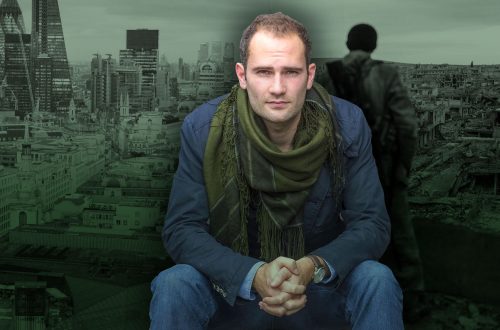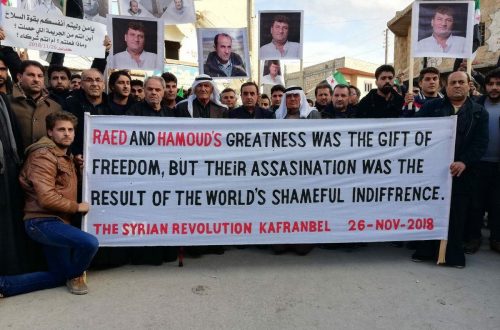Cross-posted from DaveM
This is an extended version of an article I wrote for The National entitled In isolated Syria, Assad shifts away from pan-Arabism
Anybody who spent any time in Syria before the uprisings began would have noticed the cult of personality that enveloped Bashar Al Assad, a product of the same type of idolisation that had been constructed around his father Hafez.
Central to both those cults was the linking of the Assads and Syria itself with pan-Arabism.
Rather than being regarded as an independent entity, Syria was instead presented as part of a single Arab state stretching from the Atlantic to the Arabian Gulf.
Arab nationalists, including Baathists, hold that the Arab world is a single nation that was carved up by imperialist powers into artificial and weak states. The only way to overcome this division was for the Arab world to unify and return to its natural condition as a single entity.
The pictures of Mr Al Assad in Syria were always accompanied by slogans such as “Syria, the beating heart of Arabism”, “Syria the fortress of Arabism”, and the Baath party slogan “One Arab Nation, bearing an eternal message”.
In 2005, George Galloway, the British MP, infamously described Mr Al Assad as the “last Arab leader” and Syria as “the last Arab country”.
In February 2013, Mr Al Assad told a Jordanian delegation that “Syria will remain the beating heart of Arabism”.
It’s also important to note that among Baathists the central unifying factor of Arab nationalism is the Arabic language.
The idea is that once the language becomes unified and standardised then there will also be a unity of the concepts, norms, ideas and values among its speakers, and from that a new pan-Arab consciousness will be born.
While there is a standardised Arabic, which is spoken in television news broadcasts, and a standard written language, which is found in newspapers and books, the dialects spoken in different parts of the Arab world are far from homogeneous.
For Arab nationalists and Baathists, rather than accepting this as a natural process in the evolution and diversification of a language, they see this as a negative factor preventing the emergence of the new consciousness that will lead to the rebirth of the Arab nation.
Yet recently Syrian state propaganda has taken a strange turn where Alikhbaria, the pro-regime TV channel, broadcast an ultranationalist 10-minute film entitled Our roots in the ground.
It starts off with a montage of funerals of regime soldiers killed in battle, before we see a girl speaking to her dead father and Asma Al Assad, the wife of the Syrian leader, comforting the bereaved relatives.
Halfway through the film, Mrs Al Assad appears on camera and gives a short interview.
Then something unexpected happens. The wife of the planet’s last Baath ruler appears to reject the ideology’s core principles, and speaks about how Syrians have a culturally distinct, non-Arab, identity. Arab nationalism is nowhere to be seen in this clip.
This is reinforced by the way she speaks, which is in a very distinct Syrian dialect and not in Standard Arabic.
She says:
“If today we don’t teach our children then tomorrow we won’t have a future. We are the descendants of those who taught the world the letter. We are the descendants of those who taught the world the arts of medicine, trade and architecture. This history is part of the Syrian identity. Today it’s this identity which we are fighting for. And if we’re able to develop our country and protect it in the future then the real weapon which we’re able to use is the weapon of knowledge and the weapon of understanding (sic)”
Not only is she referring to the Phoenician alphabet – which was the ancestor of the Greek, Latin, Hebrew, Aramaic and Arabic writing systems – but she’s referencing the fact that Syria was a major trading power more than 3,000 years ago.
The message she appears to convey is that Syrians were in Syria before the Arabs arrived and their descendants will remain in Syria long after the Arabs have gone.
This is completely incompatible with Baathism and may reflect a shift towards the Syrian nationalism of the Syrian Social Nationalist Party.
In a surreal twist, her words reminded me of a speech in made by the late Bashir Gemayel of the Phalange party in 1980 at Jounieh – someone who was as ideologically opposed to Baathism and pan-Arabism as one could be in the Arab World.
“We are a permanent fixture in Lebanon and in the East, while others come one time and leave at another.
“It’s true that the extent of our existence isn’t geographically stable, but our existence itself is forever stable.
“We are this East’s saints and its devils, we are its cross and its spear, we are its light and its fire,” he said.
“We are able to burn it if they burn our fingers, and we are able to light if they leave us with our freedom.”
While no one can predict what will happen in Syria, when the wife of the general secretary of the Baath party appears on TV and makes it clear that Syrians aren’t Arabs, it’s pretty safe to say that Baathism as an ideology is well and truly dead.


